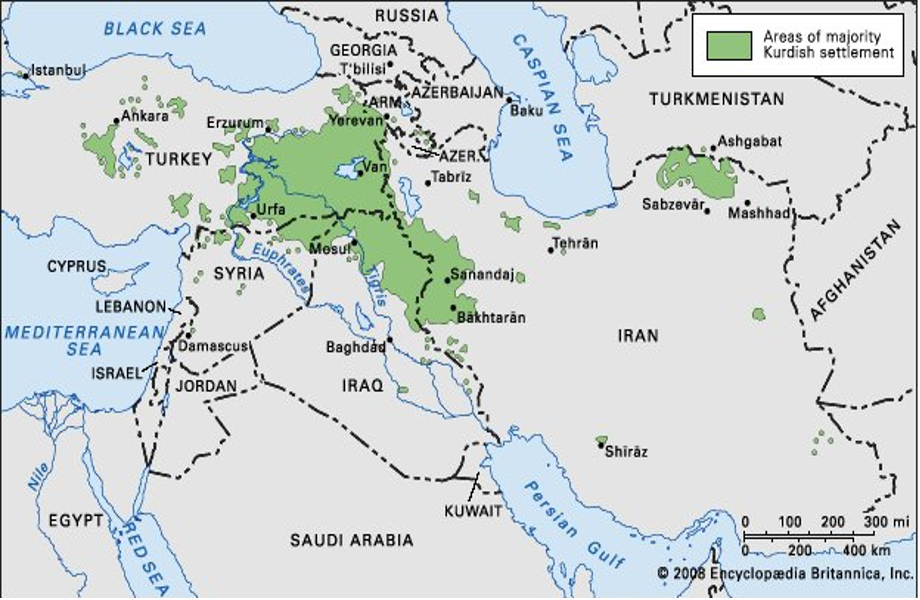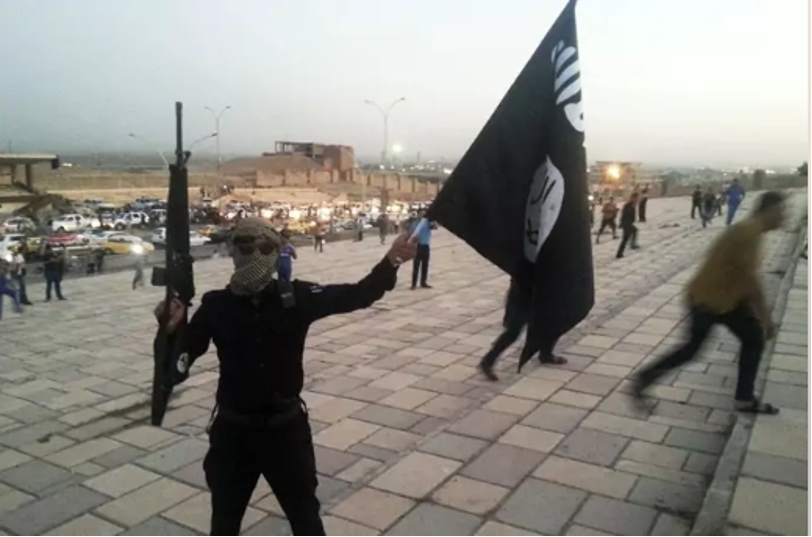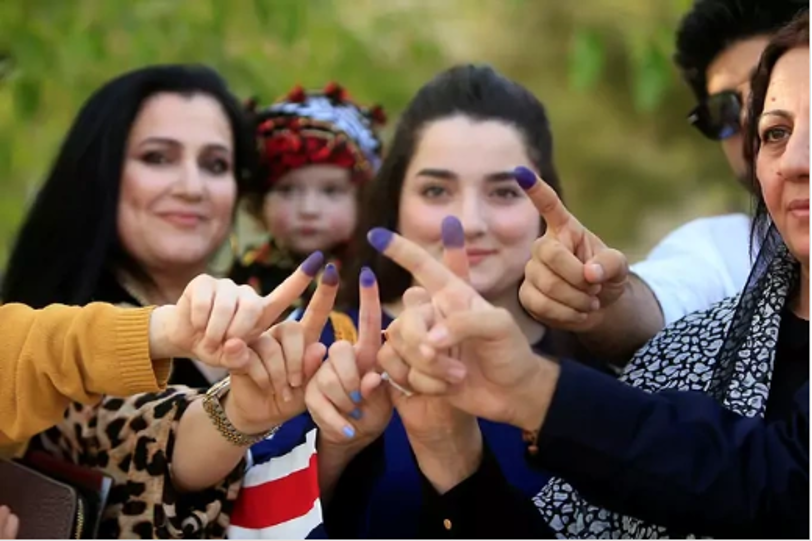Introduction
The establishment of an independent Kurdish national state is an issue that has been discussed for many decades. The Kurds are a distinct ethnic group whose people inhabit a large portion of the Middle East and parts of Asia, including Iran, Iraq, Syria, and Turkey. Despite their large population, the Kurds have never had their political autonomy or their state. This has been a significant source of contention between the Kurds and their host countries, besides being a source of instability in the Middle East. The establishment of an independent Kurdish national state has been a long-standing goal of the Kurdish people and has been the subject of much debate and discussion in recent years. However, the idea has never come to fruition, mainly due to the opposition of their host countries. The Kurds’ persecution and discrimination in their countries have led to a desire among many Kurds for a separate state in which they can enjoy greater political, economic, and cultural independence. The Kurdish people have a long and complex history, and their desire for an independent state has been met with many obstacles. The main obstacles to establishing an independent Kurdish state include political divisions, military opposition from Turkey, Iraq, Iran, and Syria, economic dependence, geopolitics, and inadequate international recognition. This paper will explore each of these obstacles in-depth, understanding the challenges blocking the establishment of an independent Kurdish national state.
Lack of Political Unity
The Kurdish population is divided among four countries (Iraq, Iran, Syria, and Turkey), and these countries are not likely to agree to establish a unified Kurdish state. The lack of political unity between the four countries is a significant obstacle to establishing an independent Kurdish national state (Ali, 2015, p.12). The Kurdish people are spread across the four countries, and each nation has sought to maintain control over its respective Kurdish populations. The Kurdish Regional Government (KRG) has sought greater autonomy and independence in Iraq, but Baghdad has consistently opposed such moves. Syria has also opposed any attempts by the Kurds to gain greater autonomy, while Iran and Turkey have long sought to prevent the Kurds from achieving independence (Park, 2012, p.118). Furthermore, the lack of political unity between these states makes it difficult to reach a consensus on the issue. This is due to the situation’s complexity, as each country has its interests and concerns. The presence of armed Kurdish groups in each country further complicates the relationship between the states. This has resulted in a complex security situation, making it difficult to reach a consensus on the issue.
The figure shows the Kurds’ distribution in the Middle East.

Furthermore, the lack of political unity between these states has also hindered peaceful efforts to resolve the Kurdish conflict. Negotiations have been difficult to arrange due to the lack of trust between the states, and the political divisions have made it difficult to reach a consensus on potential solutions (Abbassi et al., 2022, p.190). Finally, the lack of political unity between Iraq, Iran, Syria, and Turkey has also hindered the ability of the international community to intervene in the Kurdish conflict. The United Nations has been unable to pass a resolution that considers the interests of all four countries, making it difficult to broker a peaceful resolution to the crisis. The complexity of the situation and the presence of armed Kurdish groups have made it difficult to reach a consensus, while the divisions between the states have hindered the international community’s ability to intervene.
Recent events have only increased the tensions between these countries and the Kurds. In 2017, the KRG held a referendum for independence, which Iraq, Iran, and Turkey opposed. In response, the Iraqi government launched an assault on the KRG in October of that year. In 2018, Turkey launched a military operation in northern Syria against Kurdish forces, while Iran has also taken steps to target Kurdish forces in Syria. These actions have severely hindered the Kurds’ ability to establish an independent state. The lack of political unity between Iraq, Iran, Syria, and Turkey has prevented them from forming a unified front (Gunter, 2018, p.26). Without the support of these countries, the Kurds have struggled to garner enough political and international support to achieve their goals. The Kurdish people have also been further hindered by the presence of non-state actors, such as ISIS, which has sought to undermine the Kurdish cause and undermine stability in the region (Ipek, 2017, p.412). Moreover, the US withdrawal from Syria in 2019 left the Kurds without a significant ally in the region, thus further weakening their chances of establishing an independent state.
The figure illustrate an Islamic state fighter during the rise of ISIS in 2014.

Military Opposition
The establishment of an independent Kurdish national state has been a long-term goal of the Kurdish people, who are spread over several countries in the Middle East. The Kurds have faced significant opposition to this goal from various military forces, as the establishment of a Kurdish state could lead to redrawing national borders and threaten the legitimacy of existing governments. This opposition has been particularly prominent in recent years. In Iraq, the Iraqi military has consistently been hostile to Kurdish independence, with the central government in Baghdad refusing to recognise the autonomy of the Kurdistan Regional Government (KRG) and taking military action against the Iraqi Kurdish Peshmerga forces (Hussein, 2022, p. 123). For instance, in 2017, the Iraqi military launched an offensive to reclaim the city of Kirkuk from the KRG and has since maintained a presence in the city. The Iraqi government has also threatened to use military force against the KRG in response to its attempts at self-governance. The organisation of this is not possible.
In Syria, the Syrian government has been similarly opposed to Kurdish autonomy and has sought to prevent the Kurds from developing any form of self-governance. The Syrian military has conducted numerous operations against Kurdish-held areas, including the 2018 “Operation Peace Spring”, which aimed to retake the city of Afrin from the Kurdish-led militia known as the People’s Protection Units (YPG) (Gunes & Lowe, 2015, p.4). The Syrian government has also threatened to use military force against the Kurds to prevent the establishment of an independent Kurdish state. In Turkey, the Turkish military has long been hostile to Kurdish autonomy and has repeatedly used military force to suppress Kurdish uprisings. In recent years, the Turkish military has conducted several large-scale operations against the Kurdistan Workers’ Party (PKK), including the 2016-17 “Operation Euphrates Shield” and the 2018 “Operation Olive Branch” (Ipek, 2017, p.410). These operations have resulted in the displacement of thousands of civilians and have further hindered the establishment of an independent Kurdish state.
In addition to the military opposition, the Kurds have faced opposition from other regional powers such as Iran, Armenia, and Saudi Arabia, who have sought to prevent the emergence of a Kurdish state from protecting their own political and strategic interests. For instance, in 2018, the Iranian government launched a military offensive against the Kurdish-majority areas in the country’s north. The Armenian military has also sought to suppress Kurdish nationalist movements. Similarly, Saudi Arabia has expressed alarm over the prospect of an independent Kurdistan, warning that it would destabilise the region and threaten Riyadh’s interests. Furthermore, both countries have provided military and financial support to Syria’s forces fighting against the Kurds. This has made it difficult for the Kurds to establish an independent state. Overall, military opposition to Kurdish autonomy has significantly hindered the establishment of an independent Kurdish state. The various military forces in the Middle East have used force to suppress Kurdish uprisings and have sought to maintain control over Kurdish-held areas, thereby preventing the Kurds from achieving their goal of self-governance.
Economic Dependence
The establishment of an independent Kurdish national state has been hindered by economic dependence. This issue has become increasingly relevant over the past decade as the Kurdistan Regional Government (KRG) has worked to assert its autonomy from the central government in Baghdad. The KRG has sought to build an independent economy, but it has been hampered by its reliance on oil revenues and the political wrangling between Baghdad and Erbil. The economic relationship between Erbil and Baghdad is one of the main obstacles to establishing an independent Kurdish state (Ipek, 2017, p.412). The KRG heavily depends on the federal government for oil revenues and other economic resources. Baghdad has used this dependence to its advantage, withholding oil revenue payments to the KRG to gain leverage in political negotiations. This has made it difficult for the KRG to establish a solid economic base for independence. Its limited access to international markets has also hampered the KRG. As a semi-autonomous region of Iraq, the KRG is not recognised as an independent state and, therefore, cannot access international financial institutions and markets (Degli Esposti, 2021, p.2324). This has limited the KRG’s ability to attract foreign investment and has hindered its economic growth.
Furthermore, the KRG is affected by Iraq’s economic and political instability. Iraq has struggled with economic and political instability since the US-led invasion in 2003. This instability has resulted in a weakened Iraqi dinar, meaning that the KRG’s oil revenues are worth less than they otherwise would be (Snow, 2018, p.2). This has made it difficult for the KRG to build an independent economy. Finally, the KRG’s economic dependence on Turkey has posed a challenge to establishing an independent Kurdish state. Turkey is the main export route for the KRG’s oil, and it has regularly used this leverage to exert pressure on the KRG in political negotiations (Abbassi et al., 2022, p.185). This has hindered the KRG’s ability to assert its autonomy from the central government in Baghdad. Budget battles and contract clashes between KRG and Baghdad threaten the existence of an independent Kurdistan national state (Snow, 2018, p.4).
Generally, economic dependence has been a significant hurdle to establishing an independent Kurdish state. The KRG’s reliance on oil revenues from Baghdad and its limited access to international financial markets has hindered its ability to build a solid economic base for independence (Hussein, 2022, p.6). Furthermore, the KRG’s dependence on Turkey has made it challenging to assert autonomy from the central government in Baghdad. Many Kurds still rely heavily on subsidies and aid from the states where they live, making independence challenging to achieve (Ali, 2015, p.58). To establish an independent Kurdish state, the KRG must find ways to reduce its economic dependence and build an independent economy.
Geopolitics
Geopolitics refers to a nation or region’s political and economic factors that influence a state’s decision-making process. It is a complex concept that considers the influence of geography, history, politics, culture, and economics. Geopolitics can be used to further an agenda or to hinder one. Geopolitical factors have hindered the establishment of an independent Kurdish national state for decades (Meintjes, 2018, p.345). The Kurds, an ethnic group that inhabits a region spanning the borders of Iraq, Iran, Syria, and Turkey, have been denied an independent state since the end of World War I. This is due in part to the geopolitical forces at play in the region. The four countries where the Kurds are located reject the idea of a Kurdish state, as it would significantly weaken their geopolitical positions. Turkey is concerned that establishing a Kurdish state would create a domino effect, leading to similar demands from other ethnicities in the region (Sumer & Joseph, 2018, p.583). The region where the Kurds live is heavily contested by regional powers, making establishing an independent Kurdish state difficult.
In addition, the region’s geopolitical landscape is highly complex and unpredictable, often making it difficult for the international community to intervene. For example, the ongoing civil war in Syria has made it difficult for the international community to take a unified stand on the Kurdish issue (Gunes & Lowe, 2015, p.4). This is especially true given the frequent shifts in alliances and the numerous foreign players involved in the conflict. Furthermore, the regional powers in the Middle East, such as Turkey, Iran, and Israel, are also opposed to the idea of an independent Kurdish state. These countries view it as a potential threat to their geopolitical interests and would likely oppose any attempts by the international community to intervene (Park, 2012, p.121).
The geopolitical landscape of the Middle East has made it difficult for the Kurds to achieve their goal of an independent state. In the past few years, there have been some attempts to create a Kurdistan Regional Government (KRG), but these attempts have largely been unsuccessful. In 2017, the independence referendum in Iraq was also a failure, as it was largely rejected by the Iraqi government and the Arab and Turkmen populations of the region (Meintjes, 2018, p. 287). Despite the geopolitical obstacles, there is still hope for establishing an independent Kurdish state. The KRG has made some progress in recent years, and there is growing international support for the Kurdish cause. In 2018, the United Nations passed a resolution calling for the protection of the rights of the Kurdish people (Council on Foreign Relations., 2022). Overall, geopolitical forces have hindered the establishment of an independent Kurdish national state for decades. The regional powers in the Middle East, and the complex geopolitical landscape of the region, have made it difficult for the international community to intervene. As a result, the Kurdish people have been unable to achieve their goal of an independent state.
Lack of International Recognition
The lack of international recognition is one of the significant obstacles to establishing an independent Kurdish national state. The Kurdish people, who have long sought self-determination and an independent nation-state, have failed to receive recognition of their right to self-determination from the international community. This lack of recognition has been a major stumbling block in the Kurdish struggle for independence and has hampered the creation of a viable state (Sumer & Joseph, 2018, p.579). The lack of international recognition means that the Kurds lack the legitimacy necessary to establish a viable independent state. Without diplomatic recognition, the Kurds cannot represent themselves in international affairs or gain the political support of other states (Tugdar & Al, 2018, p.130). This means that the Kurds cannot secure recognition of their independence from other countries or gain international recognition for their state.
The figure below shows Iraqi Kurds vote for Independence on September 25, 2017.

Furthermore, the Kurds cannot receive international aid or assistance in developing their state without international recognition. International recognition is necessary for the Kurds to secure access to financial and economic assistance from international institutions such as the World Bank or the International Monetary Fund (IMF). Without this assistance, the Kurds lack the resources necessary to develop their state and create a functioning economy. The lack of international recognition has been particularly problematic in recent years as the Kurds have sought to establish their autonomous region in northern Iraq. For instance, in 2017, the Kurdistan Regional Government (KRG) held a referendum in which most Kurds voted in favour of independence (Hussein, 2022). However, the international community did not recognise this referendum, and the KRG could not declare independence. This lack of recognition has hindered the KRG’s efforts to create a viable independent state and has frustrated the Kurdish people’s aspirations for a sovereign nation.
Conclusion
The establishment of an independent Kurdish national state has been hindered by a variety of factors, including the lack of political unity between the four countries that contain a Kurdish population (Iraq, Syria, Turkey, and Iran), military opposition to Kurdish autonomy, economic dependence, and lack of international recognition. The situation’s complexity has made it difficult to reach a consensus on the issue, while armed Kurdish groups have hindered the international community’s ability to intervene. The Kurds have also faced opposition from regional powers, while the economic and political instability in the region has hindered the KRG’s ability to build an independent economy. Finally, the lack of international recognition has made it difficult for the Kurds to gain access to financial and economic assistance and diplomatic recognition from other states. Despite these challenges, there is still some hope for establishing an independent Kurdish state, as the KRG has made some progress in recent years and there is growing international support for the Kurdish cause.
References
Abbassi, E., Salehi, S.J. and Salehi, M., 2022. The Oil Policy and Independence of the Kurdistan Regional Government. Iran and the Caucasus, 26(2), pp.183-197.
Ali, A. H., 2015. The obstacles facing Kurdistan’s independence from Iraq. Al-Bayan Center. https://www.bayancenter.org/en/2015/05/112/
Council on Foreign Relations. 2022. Timeline: The Kurds’ quest for independence. https://www.cfr.org/timeline/kurds-long-struggle-statelessness
Degli Esposti, N., 2021. The 2017 independence referendum and the political economy of Kurdish nationalism in Iraq. Third World Quarterly, 42(10), pp.2317-2333. https://www.tandfonline.com/doi/pdf/10.1080/01436597.2021.1949978
Gunes, C. and Lowe, R., 2015. The impact of the Syrian war on Kurdish politics across the Middle East (p. 4). London: Chatham House. https://syria.chathamhouse.org/assets/documents/20150723SyriaKurdsGunesLowe.pdf
Gunter, M.M., 2018. Kurdish disunity in historical perspective. Whitehead J. Dipl. & Int’l Rel., 19, p.26. http://blogs.shu.edu/journalofdiplomacy/files/2018/06/Kurdish-Disunity-In-Historical-Perspective.pdf
Hussein, N., 2022. Kurdistan Regional Government: Internal Constrains and Failed Quest for Independence. https://dspace.cuni.cz/bitstream/handle/20.500.11956/177410/120428928.pdf?sequence=1
Ipek, P., 2017. Oil and intra-state conflict in Iraq and Syria: sub-state actors and challenges for Turkey’s energy security. Middle Eastern Studies, 53(3), pp.406-419. http://repository.bilkent.edu.tr/bitstream/handle/11693/37206/Oil_and_intra_state_conflict_in_Iraq_and_Syria_sub_state_actors_and_challenges_for_Turkey_s_energy_security.pdf?sequence=1
Meintjes, A. J., 2018. The complications of Kurdish independence. Open Journal of Political Science, 8, 1-11. https://www.scirp.org/journal/paperinformation.aspx?paperid=80819
Park, B., 2012. Turkey, the US and the KRG: Moving Parts and the Geopolitical Realities. Insight Turkey, 14(3), pp.109-125. https://ciaotest.cc.columbia.edu/journals/it/v14i3/f_0025950_21241.pdf
Snow, A., 2018. Kurdistan and Baghdad: A tangled web over oil and budgets. United States Institute of Peace. https://www.usip.org/publications/2018/01/kurdistan-and-baghdad-tangled-web-over-oil-and-budgets
Sumer, F. and Joseph, J., 2018. The paradox of the Iraqi Kurdish referendum on independence: contradictions and hopes for economic prosperity. British Journal of Middle Eastern Studies, 45(4), pp.574-588. https://www.researchgate.net/profile/Jay-Joseph/publication/323115343_The_paradox_of_the_Iraqi_Kurdish_referendum_on_independence_contradictions_and_hopes_for_economic_prosperity/links/5b504e65aca27217ffa26c3e/The-paradox-of-the-Iraqi-Kurdish-referendum-on-independence-contradictions-and-hopes-for-economic-prosperity.pdf
Tugdar, E.E. and Al, S., 2018. Iraqi Kurdistan Independence Aspirations and the Neo-Ottomanist Turkey. In Federalism, Secession, and International Recognition Regime (pp. 127-145). Routledge.
 write
write